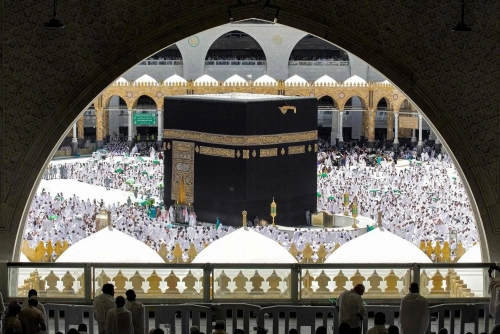Spiritual essence of Ramadan: A journey of faith and renewal
Ramadan is not just a month of fasting; it is a time of deep spiritual renewal, self-discipline, and heightened devotion to Allah. As one of the holiest months in Islam, it offers a unique opportunity for Muslims to purify their hearts, seek forgiveness, and strengthen their faith through acts of worship and kindness. It is a period of transformation, where believers strive to draw closer to Allah and embrace the values of patience, gratitude, and compassion.
Purifying the soul
Fasting from dawn until sunset is the most visible aspect of Ramadan, but its true purpose goes beyond abstaining from food and drink. It is a means of purifying the soul, controlling desires, and developing self-restraint. The Quran states: “O you who have believed, fasting has been prescribed upon you as it was prescribed upon those before you, so that you may attain Taqwa (God-consciousness)” (Surah Al-Baqarah 2:183). This verse highlights that the ultimate goal of fasting is to cultivate a deeper awareness of Allah, allowing believers to become more mindful of their actions and intentions.
One of the most significant aspects of Ramadan is the revelation of the Quran. It was in this blessed month that the first verses of the Quran were revealed to the Prophet Muhammad (PBUH). As a result, Muslims are encouraged to dedicate time to reciting, understanding, and reflecting upon the Quran. Many aim to complete its recitation at least once during the month, while others attend nightly Taraweeh prayers to listen to its recitation in congregation. The connection with the Quran during Ramadan serves as a reminder of divine guidance and the importance of implementing its teachings in daily life.
Mercy and forgiveness
Ramadan is also a month of immense mercy and forgiveness. The Prophet (PBUH) said, “Whoever fasts during Ramadan with faith and seeking reward, his past sins will be forgiven” (Bukhari, Muslim). This hadith emphasizes the power of sincere worship in this sacred month. Muslims engage in increased supplication (dua), seeking Allah’s pardon for past mistakes and praying for His blessings in both this life and the Hereafter. The last ten nights hold special significance, particularly Laylatul Qadr (the Night of Decree), which is described in the Quran as “better than a thousand months” (Surah Al-Qadr 97:3). On this night, Allah’s mercy descends abundantly, and sincere prayers are accepted.
Charity and generosity
Acts of charity and generosity define Ramadan, as the rewards for good deeds are multiplied. The Prophet (PBUH) was known to be even more generous in this month, encouraging believers to help the less fortunate. Many give Zakat (obligatory charity) and Sadaqah (voluntary charity) to ensure that those in need can also experience the joy of Ramadan. Feeding others, whether through providing Iftar meals or supporting charitable causes, brings immense blessings. This emphasis on giving fosters a sense of community and reminds Muslims of their responsibility toward others.
The fast is broken each day at sunset with Iftar, often beginning with dates and water, following the Sunnah of the Prophet (PBUH). This moment of breaking the fast is a time of gratitude, where Muslims reflect on the blessings they have and make heartfelt supplications. The communal aspect of Iftar, whether with family, friends, or at the mosque, strengthens bonds and fosters a spirit of unity.
As Ramadan comes to an end, the celebration of Eid-ul-Fitr marks the completion of this blessed journey. It is a day of joy, gratitude, and togetherness, where Muslims gather for prayers, share meals, and give charity (Zakat-ul-Fitr) to ensure that even the less fortunate can celebrate. However, the true success of Ramadan lies in carrying forward its lessons—maintaining Taqwa, continuing acts of kindness, and preserving the connection with Allah throughout the year.
Gift Ramadan is a gift from Allah, a chance for spiritual renewal and personal growth. It is a reminder that true fulfillment comes not from material possessions but from sincere worship, gratitude, and service to others. By embracing the essence of Ramadan, Muslims strengthen their faith, purify their hearts, and prepare for the journey ahead with renewed commitment and devotion.
Related Posts

